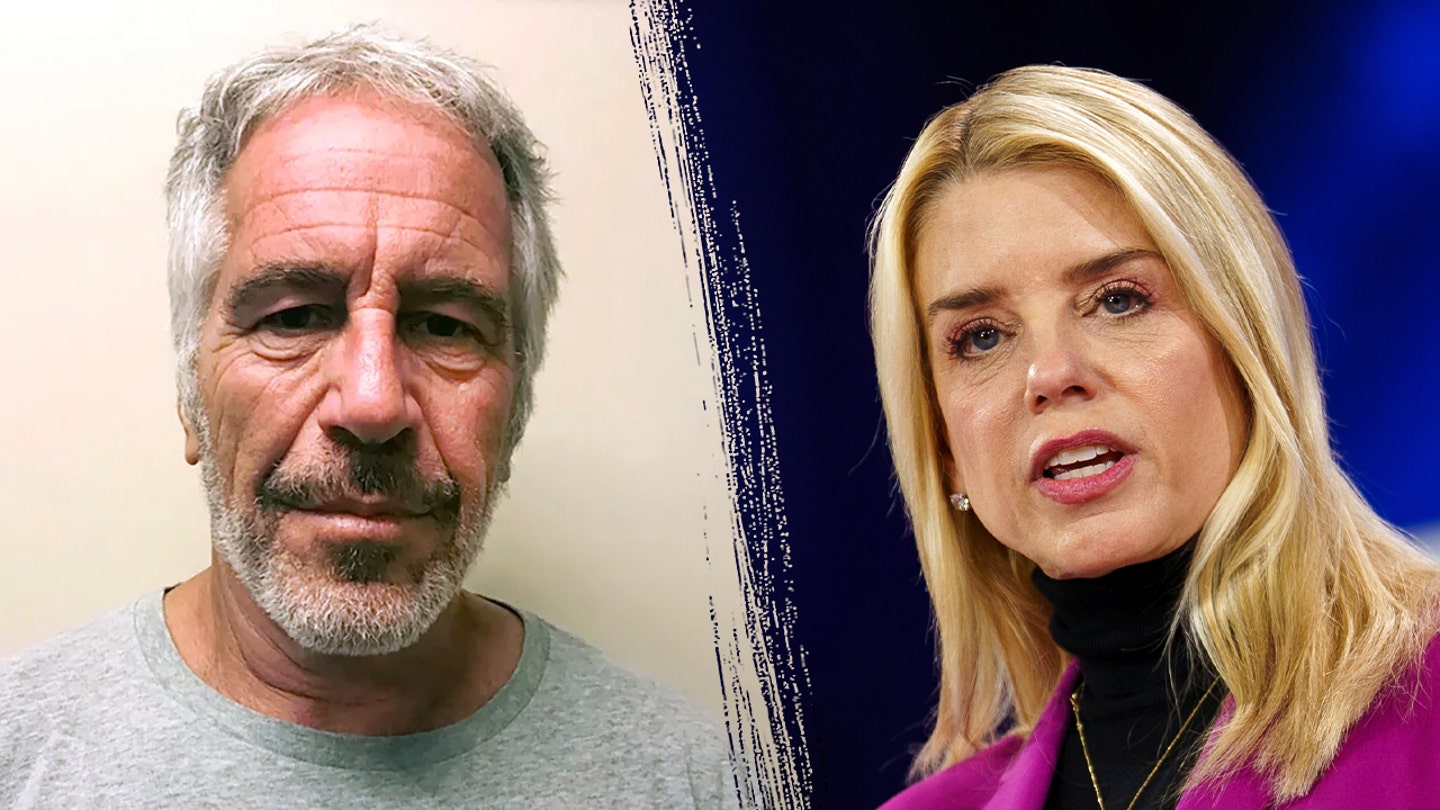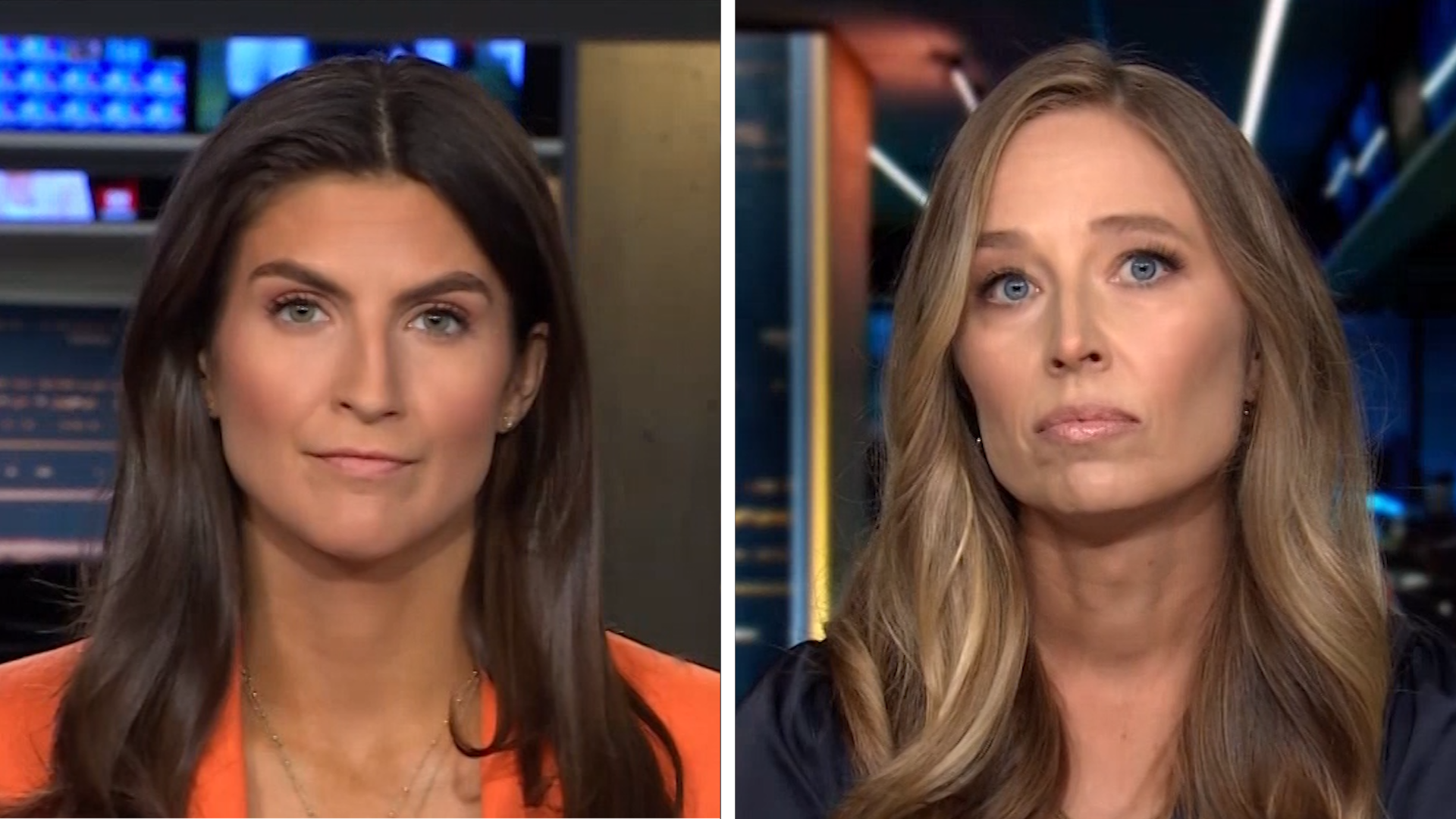
READ: Transcript of the Justice Department’s interview with Ghislaine Maxwell
Entities mentioned:
- Department of Justice: Justice, Duty, Transparency
- Todd Blanche: Professional pride, Duty, Curiosity
- Ghislaine Maxwell: Self-preservation, Obligation, Wariness
- Jeffrey Epstein: Power, Greed, Control
- Donald Trump: Power, Influence, Recognition
Article Assessment:
Credibility Score: 75/100
Bias Rating: 50/100 (Center)
Sentiment Score: 45/100
Authoritarianism Risk: 25/100 (Generally Democratic)
Bias Analysis:
The article presents factual information without apparent partisan slant. It neutrally reports on the release of the transcript and the circumstances surrounding the interview, avoiding inflammatory language or political commentary.
Key metric: Public Trust in Government Institutions
As a social scientist, I analyze that this release of the interview transcript with Ghislaine Maxwell by the Department of Justice is likely to have a significant impact on public trust in government institutions. The transparency shown by releasing this document may help to improve public perception of the DOJ's commitment to accountability. However, the limited immunity granted to Maxwell and her subsequent transfer to a minimum-security prison may be viewed skeptically by some, potentially undermining trust. The involvement of a former Trump lawyer in the interview adds a political dimension that could further complicate public perception, depending on how it's interpreted across the political spectrum.

Inside the Trump team’s debate on what to release from the Epstein files
Entities mentioned:
- Trump administration: Control, Self-preservation, Influence
- Jeffrey Epstein: Power, Greed, Control
- Todd Blanche: Duty, Professional pride, Justice
- Ghislaine Maxwell: Self-preservation, Loyalty, Influence
- Department of Justice: Duty, Justice, Obligation
- House Oversight Committee: Justice, Duty, Righteousness
- Donald Trump: Control, Self-preservation, Influence
- John Bolton: Revenge, Recognition, Influence
Article Assessment:
Credibility Score: 75/100
Bias Rating: 45/100 (Center)
Sentiment Score: 35/100
Authoritarianism Risk: 40/100 (Generally Democratic)
Bias Analysis:
The article presents multiple perspectives and cites various sources within the administration, suggesting a balanced approach. While it focuses on Trump administration decision-making, it also includes critical viewpoints and mentions potential controversies, maintaining a relatively neutral stance.
Key metric: Public Trust in Government
As a social scientist, I analyze that this article reveals the complex interplay between political strategy, public perception, and the handling of sensitive information in a high-profile case. The Trump administration's deliberations over releasing Epstein-related materials demonstrate a calculated approach to controlling the narrative and managing potential fallout. This strategic maneuvering impacts public trust in government, as it highlights the tension between transparency and potential cover-ups. The administration's focus on 'taking control of the narrative' suggests a prioritization of image management over full disclosure, which could erode public confidence. However, the eventual decision to release some materials, coupled with Trump's call for openness, may partially mitigate this effect. The ongoing involvement of the House Oversight Committee adds a layer of checks and balances, potentially boosting public trust in the process of accountability.

Trump DOJ releases 'thousands' of Epstein files to House Oversight Committee
Entities mentioned:
- Trump administration: Transparency, Obligation, Control
- House Oversight Committee: Justice, Duty, Righteousness
- James Comer: Determination, Duty, Transparency
- Department of Justice: Obligation, Control, Professional pride
- Jeffrey Epstein: Power, Greed, Self-preservation
- Ghislaine Maxwell: Self-preservation, Loyalty, Power
- Bill and Hillary Clinton: Self-preservation, Legacy, Influence
- Bill Barr: Duty, Professional pride, Self-preservation
- Pam Bondi: Duty, Justice, Professional pride
- Todd Blanche: Duty, Professional pride, Obligation
Article Assessment:
Credibility Score: 75/100
Bias Rating: 55/100 (Center)
Sentiment Score: 45/100
Authoritarianism Risk: 30/100 (Generally Democratic)
Bias Analysis:
The article presents a relatively balanced view, including perspectives from both Republican officials and the DOJ. While it leans slightly right by focusing more on Republican-led efforts, it maintains a generally neutral tone in reporting the facts.
Key metric: Government Transparency and Accountability
As a social scientist, I analyze that this article highlights a significant development in the ongoing investigation of Jeffrey Epstein's case, potentially impacting government transparency and accountability. The Trump administration's willingness to release documents to the House Oversight Committee suggests a move towards greater transparency, albeit under pressure. This action may increase public trust in governmental processes, particularly regarding high-profile cases involving influential individuals. However, the delayed release and potential redactions indicate ongoing tensions between transparency and privacy/security concerns. The bipartisan nature of the investigation, involving both current and former administration officials, as well as prominent political figures, underscores the case's complexity and far-reaching implications. This development could lead to increased scrutiny of how high-profile cases are handled by the justice system and potentially influence future policies regarding prosecutorial decisions and plea agreements.

Maxwell says she never saw Trump do anything inappropriate, new DOJ docs reveal
Entities mentioned:
- Ghislaine Maxwell: Self-preservation, Loyalty, Influence
- Donald Trump: Power, Self-preservation, Influence
- Jeffrey Epstein: Power, Control, Greed
- Department of Justice: Justice, Duty, Obligation
- Todd Blanche: Duty, Professional pride, Curiosity
Article Assessment:
Credibility Score: 65/100
Bias Rating: 55/100 (Center)
Sentiment Score: 40/100
Authoritarianism Risk: 35/100 (Generally Democratic)
Bias Analysis:
The article presents multiple viewpoints, including Maxwell's statements and Trump's responses, showing an attempt at balance. However, the inclusion of Trump's defensive statements and criticism of Democrats suggests a slight lean towards a conservative perspective.
Key metric: Public Trust in Government Institutions
As a social scientist, I analyze that this article impacts public trust in government institutions by presenting conflicting narratives about the Epstein case and its connections to high-profile figures. Maxwell's statements defending Trump could be seen as an attempt to distance him from the scandal, potentially influencing public perception. The DOJ's involvement and the release of interview transcripts suggest a move towards transparency, but the ongoing controversy and calls for more information indicate a level of distrust in official accounts. This situation highlights the complex interplay between political figures, law enforcement, and public opinion in high-profile cases.

Bondi, Patel bring in Missouri AG to serve as FBI co-deputy director with Dan Bongino
Entities mentioned:
- Pam Bondi: Power, Control, Influence
- Kash Patel: Power, Loyalty, Control
- Andrew Bailey: Ambition, Loyalty, Duty
- Dan Bongino: Self-preservation, Pride, Influence
- Donald Trump: Power, Control, Legacy
- Todd Blanche: Loyalty, Professional pride, Influence
- FBI: Control, Security, Power
Article Assessment:
Credibility Score: 65/100
Bias Rating: 70/100 (Lean Right)
Sentiment Score: 55/100
Authoritarianism Risk: 65/100 (Authoritarian Tendencies)
Bias Analysis:
The article leans right due to its heavy reliance on Fox News as a source and its focus on Trump-aligned figures. The framing of the story and the language used suggest a favorable view of the changes in FBI leadership.
Key metric: Government Integrity and Accountability
As a social scientist, I analyze that this article reveals significant changes in the leadership structure of the FBI, a key institution in U.S. law enforcement. The appointment of a co-deputy director, especially one with strong political ties, suggests a potential shift in the FBI's operational dynamics and its relationship with the executive branch. This unusual move may impact the FBI's independence and could be seen as an attempt to exert more political control over the agency. The involvement of figures like Bondi and Patel, known for their loyalty to Trump, along with Bailey's explicit gratitude to Trump, indicates a possible politicization of the FBI's upper echelons. This development could have far-reaching implications for the integrity of federal law enforcement and the separation of powers, potentially eroding public trust in these institutions.

Justice Department says it wants to release Epstein grand jury exhibits in addition to transcripts
Entities mentioned:
- Justice Department: Duty, Transparency, Obligation
- Jeffrey Epstein: Self-preservation, Power, Control
- Ghislaine Maxwell: Self-preservation, Loyalty, Control
- Pam Bondi: Duty, Obligation, Professional pride
- Todd Blanche: Duty, Professional pride, Obligation
- Jay Clayton: Duty, Professional pride, Justice
- Donald Trump: Self-preservation, Power, Control
- Richard Berman: Justice, Duty, Professional pride
- Paul Engelmayer: Justice, Duty, Professional pride
Article Assessment:
Credibility Score: 75/100
Bias Rating: 45/100 (Center)
Sentiment Score: 40/100
Authoritarianism Risk: 30/100 (Generally Democratic)
Bias Analysis:
The article presents a balanced view of the situation, including perspectives from multiple parties involved. While it mentions Trump's involvement, it does not appear to lean heavily towards any political stance, maintaining a mostly neutral tone.
Key metric: Government Transparency Index
As a social scientist, I analyze that this article highlights a significant tension between government transparency and individual privacy rights. The Justice Department's move to release grand jury materials in high-profile cases involving Jeffrey Epstein and Ghislaine Maxwell reflects an attempt to increase transparency, likely in response to public and political pressure. However, this effort is complicated by the need to protect victims' identities and respect legal processes. The involvement of high-profile figures, including former President Trump, adds a political dimension that may influence the handling and perception of the case. This situation tests the balance between public interest, individual rights, and the integrity of the justice system, potentially impacting public trust in governmental institutions and the judicial process.

Epstein victims are a growing political threat to Trump
Entities mentioned:
- Jeffrey Epstein: Power, Control, Greed
- Donald Trump: Self-preservation, Power, Control
- Epstein victims: Justice, Recognition, Self-respect
- Pam Bondi: Loyalty, Duty, Self-preservation
- Ghislaine Maxwell: Self-preservation, Loyalty, Control
- Virginia Giuffre: Justice, Recognition, Self-respect
- Sky Roberts: Justice, Moral outrage, Recognition
- JD Vance: Loyalty, Ambition, Self-preservation
- Kash Patel: Loyalty, Duty, Self-preservation
- Annie Farmer: Justice, Recognition, Moral outrage
- Todd Blanche: Duty, Loyalty, Self-preservation
- Jennifer Freeman: Justice, Moral outrage, Professional pride
Article Assessment:
Credibility Score: 75/100
Bias Rating: 35/100 (Lean Left)
Sentiment Score: 25/100
Authoritarianism Risk: 45/100 (Mixed/Neutral)
Bias Analysis:
The article leans left, evidenced by its critical tone towards the Trump administration and sympathetic portrayal of Epstein's victims. While it presents factual information, the framing and language choices suggest a skeptical view of the administration's handling of the situation.
Key metric: Public Trust in Government Institutions
As a social scientist, I analyze that this article highlights a significant tension between political self-preservation and the pursuit of justice for victims of sexual abuse. The handling of the Epstein case by the Trump administration appears to prioritize political damage control over transparency and justice for the victims. This approach risks further eroding public trust in government institutions, particularly the Department of Justice. The victims' increasing vocalization and media attention could potentially shift public opinion and apply pressure on the administration to take more substantive action. The article suggests a growing political threat to Trump from the Epstein victims, which could impact his support base and overall public perception. The lack of representation of survivors in high-level meetings and the administration's apparent focus on political maneuvering rather than addressing victims' concerns indicate a disconnect between government actions and public expectations for justice and accountability.

Planned dinner for Trump officials to discuss Epstein appears to have been moved amid media scrutiny
Entities mentioned:
- JD Vance: Unity, Influence, Duty
- Pam Bondi: Power, Recognition, Professional pride
- Kash Patel: Power, Professional pride, Loyalty
- Susie Wiles: Control, Unity, Duty
- Dan Bongino: Self-preservation, Professional pride, Recognition
- Todd Blanche: Duty, Professional pride, Loyalty
- William Martin: Loyalty, Duty, Control
Article Assessment:
Credibility Score: 65/100
Bias Rating: 55/100 (Center)
Sentiment Score: 35/100
Authoritarianism Risk: 45/100 (Mixed/Neutral)
Bias Analysis:
The article presents multiple viewpoints and relies on unnamed sources, which is common in political reporting. While it focuses on internal conflicts in the Trump administration, it maintains a relatively neutral tone in its presentation of facts.
Key metric: Government Transparency and Accountability
As a social scientist, I analyze that this article reveals internal conflicts and attempts at realignment within the Trump administration regarding the handling of the Epstein case. The planned dinner, which was apparently moved or canceled due to media scrutiny, indicates a desire to present a unified front and regain control of the narrative. The tensions between key figures like Bondi, Patel, and Bongino highlight the challenges in managing high-profile cases and maintaining cohesion within the administration. The article suggests a struggle between transparency and control of information, which directly impacts government accountability. The administration's response to media attention by potentially altering their meeting plans also demonstrates the influence of public scrutiny on government operations.

In the Epstein scandal, like other Washington storms, the victims are an afterthought
Entities mentioned:
- Virginia Giuffre: Justice, Self-preservation, Recognition
- Jeffrey Epstein: Power, Control, Greed
- Ghislaine Maxwell: Power, Greed, Control
- Donald Trump: Self-preservation, Power, Control
- Prince Andrew: Self-preservation, Reputation, Denial
- Randee Kogan: Professional pride, Duty, Empathy
- Todd Blanche: Duty, Professional pride, Loyalty
Article Assessment:
Credibility Score: 75/100
Bias Rating: 40/100 (Lean Left)
Sentiment Score: 25/100
Authoritarianism Risk: 30/100 (Generally Democratic)
Bias Analysis:
The article leans slightly left, critiquing Trump and right-wing conspiracy theories more than other political actors. However, it maintains a focus on victims and includes multiple perspectives, balancing its overall presentation.
Key metric: Public Trust in Government Institutions
As a social scientist, I analyze that this article highlights the complex interplay between political power, media coverage, and the impact on victims in high-profile scandals. The Epstein case and its connections to influential figures like Trump and Prince Andrew demonstrate how victims' experiences can be overshadowed by political maneuvering and media sensationalism. This dynamic erodes public trust in government institutions, as it suggests that powerful individuals may escape scrutiny or consequences for their actions. The article's focus on the re-traumatization of victims and the dehumanizing effect of media coverage points to systemic issues in how society handles such cases, potentially leading to decreased faith in the justice system and political leadership.

Tapes, transcripts, subpoenas, and legal twists: Trump’s Epstein storm deepens again
Entities mentioned:
- Donald Trump: Self-preservation, Power, Control
- Jeffrey Epstein: Power, Control, Greed
- Ghislaine Maxwell: Self-preservation, Loyalty, Fear
- Todd Blanche: Duty, Loyalty, Professional pride
- JD Vance: Loyalty, Ambition, Power
- House Oversight Committee: Justice, Duty, Influence
Article Assessment:
Credibility Score: 70/100
Bias Rating: 40/100 (Lean Left)
Sentiment Score: 30/100
Authoritarianism Risk: 55/100 (Mixed/Neutral)
Bias Analysis:
The article leans slightly left, evidenced by its critical tone towards the Trump administration and emphasis on potential wrongdoing. However, it also presents multiple perspectives and includes factual reporting on actions taken by various parties.
Key metric: Public Trust in Government
As a social scientist, I analyze that this article reveals a complex web of political maneuvering, legal challenges, and ethical concerns surrounding the Epstein case and its connection to the Trump administration. The ongoing scandal threatens to erode public trust in government institutions, particularly the Justice Department, as it raises questions about potential abuse of power and political interference in legal matters. The administration's handling of the Maxwell interviews and potential transcript release suggests a struggle between transparency and political self-interest, while the House Oversight Committee's selective subpoenas indicate partisan motivations in the investigation. This situation highlights the tension between democratic accountability and the potential for authoritarian tendencies in high-level government operations.